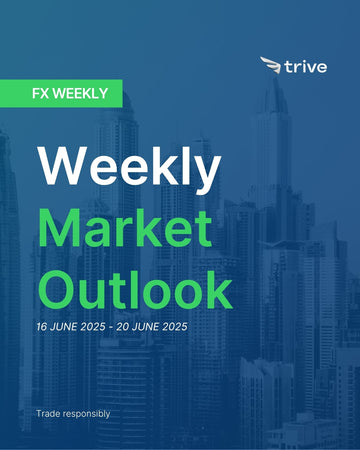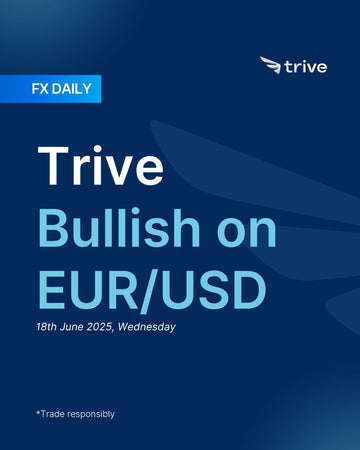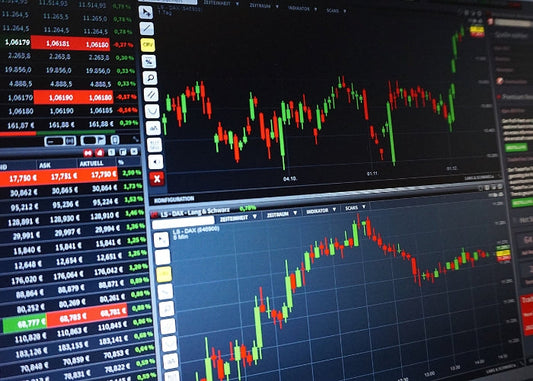FX Daily: Trive Bullish on USD/JPY

USD/JPY holds a bullish bias as the USD gains short-term support from geopolitical risks and short-covering, despite safe-haven flows favoring JPY and CHF. Meanwhile, the BoJ might showing dovish, with no rate change expected and slower JGB tapering likely. Unless risk sentiment shifts sharply, JPY weakness should persist, supporting upside in USD/JPY.
USD: Fed up
Despite serious tensions in the Middle East, the oil market has remained
surprisingly stable. Even after Israel’s latest attack on Iran, oil production
hasn’t been disrupted, tankers are still loading, and supply continues to
exceed demand. This oversupply has been building for months, with global
inventories rising above normal levels and demand growth slowing. While
prices briefly spiked, they quickly fell again as traders saw the rally as a
chance to sell. The risk of a real supply shock still exists, but for now, the
fundamentals point to a well-supplied market, and that may keep oil prices
from surging.
The most likely outcome is that tensions stay contained, with no direct
attack on the U.S. In that case, market reactions may remain limited. A
second, more serious scenario would involve Iran retaliating against the U.S.
but doing so carefully, for example, issuing warnings to avoid casualties.
This would raise risks but still stop short of triggering a major escalation.
The worst-case scenario involves Iran striking U.S. military positions or
trying to close the Strait of Hormuz, a key route for global oil shipments.
That could force the U.S. into a broader regional conflict alongside Israel. In
such a case, the USD and oil prices could surge sharply, possibly reaching
$130 a barrel.
The dollar’s limited bounce after Israel’s strikes on Iran shows that it’s no
longer the automatic safe haven it once was. While the greenback did edge
higher, it quickly gave back most of its gains, a contrast to how it used to
behave during international crises. Broader concerns about U.S. trade
policy, economic growth, and rising debt have weakened overall
confidence. Some analysts suggest that unless tensions in the Middle East
escalate significantly, any further dollar strength may be short-lived. Still,
with the U.S. being the world’s largest oil producer and the dollar recently
hitting multi-year lows, the bounce may have been driven more by
positioning and short-covering than by genuine safe-haven demand, and
that could give it short-term momentum.
Thus, the baseline bias is weak bullish for the dollar, unless the risk
sentiment somehow reverses to risk on or the FOMC delivers a very dovish
meeting - but due to the Iran-Israel conflict the FOMC could be
overshadowed. As a reminder, Although recent events have given the U.S.
dollar a modest boost, Friday’s attack demonstrated that investors currently
favor the Swiss franc and the Japanese yen over the dollar. Over the long
term, however, it remain bearish on the dollar. The present conflict may
strengthen the dollar in the short term, but absent further escalation, such
as U.S. involvement or attacks on American bases, will expect any rally to
be temporary. In that scenario, look for opportunities to sell the USD when it
becomes overbought. Do so cautiously, keeping a close watch on the news
and assessing whether tensions are rising or easing and whether a peace
agreement is likely.
JPY: Dovish BoJ?
As of Sunday, the markets assign a 98% probability to holding rates steady
and a 2% probability to a 10‐bps rate hike by the Bank of Japan at its June
17th meeting. The interest rate path is slightly lower compared to last week,
and the markets are pricing in 6‐bps of rate hikes over the next five
meetings.
That being said, the main focus on the meeting will be the plan of JGB
reducing. As a reminder, the Bank of Japan is reportedly weighing a plan to
reduce the pace of its Japanese government bond (JGB) tapering by half,
cutting quarterly purchases to 200 billion yen (around $1.4 billion) starting in
April 2026, and is expected to receive majority backing from board
members. BoJ Governor Kazuo Ueda will continue to say that the central
bank will keep raising rates if the economy evolves as expected, but will
qualify this statement saying this is also dependent on market volatility.
Ueda sounded less hawkish this week before the Diet saying that inflation is
still some distance from the BoJ’s target.
Unless risk sentiment receives a significant boost, will expect the Japanese yen to remain weak.

No comments
Home
Trive
TriveHub





0 comments